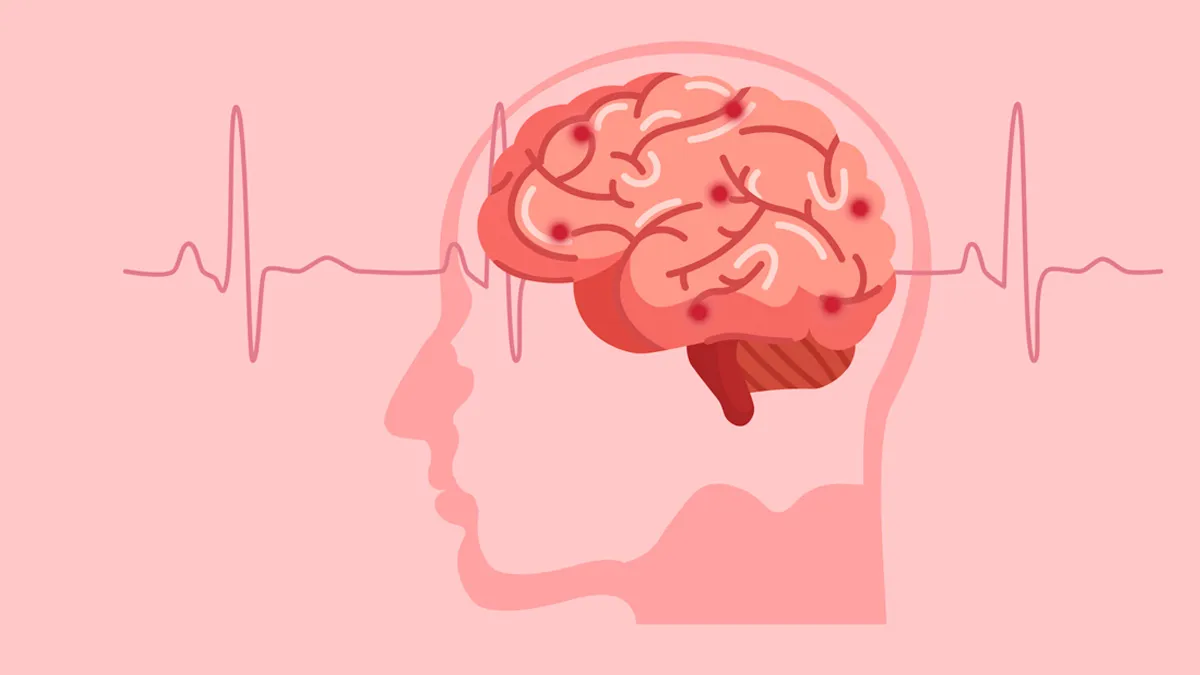
The term brain fever is often used for describing someone falling seriously ill with high temperature and altered mental state. However, is brain fever a medical condition? Experts say that the phrase itself is not a clinical diagnosis, but it loosely refers to a group of dangerous infections where the brain becomes inflamed due to fever-causing pathogens.
Table of Content:-
To understand what really happens, we spoke to Dr Divya Joshi, Consultant, Infectious diseases, Fortis Hospital, Bannerghatta Road, Bangalore, and here is what she explained to us.
What People Generally Refer To As Brain Fever Is Actually Inflammation Of The Brain
"Brain fever is a layman's term. In medicine, we are usually referring to meningitis or encephalitis, both of which involve inflammation in and around the brain," Dr Joshi. These are generally caused by bacterial, viral, fungal, or, in rare instances, parasitic infections. The inflammation interferes with the brain's normal activity and can be life-threatening if left untreated. Even though a common viral fever will not affect the brain, a serious systemic infection can rapidly get worse and develop into neurological symptoms.
How A Simple Fever Can Involve The Brain
Most fevers are the body's natural response to infections. But when the infectious agent crosses the blood, brain barrier which is the protective shield around the brain, triggers inflammation.
Also Read: How Long Does Dengue Last? Pranit More's Eviction from Bigg Boss House - Report

Dr Joshi added, "The high temperature itself is usually not the main culprit. It's the infection and the inflammatory reaction that put pressure on the brain tissues." This pressure can cause symptoms such as:
- Severe, persistent headache
- Neck stiffness
- Confusion or irritability
- Seizures
- Vomiting
- Light sensitivity
- Sudden behavioral changes
Other warning signs in children include excessive sleepiness, inconsolable crying, refusing food, or bulging soft spots on the head.
Who Is at Higher Risk?
Anyone can get meningitis or encephalitis, but some people are at increased risk. As Dr Joshi explained, infants, elderly adults, people with weakened immunity, and those not vaccinated against infections like measles, mumps, or Japanese encephalitis are more prone to this condition. Poor hygiene, contaminated water, and being exposed to mosquito bites which carry viruses also predisposes one to viral meningitis.
Also Read: Tired But Normal Test Reports? Hidden Inflammation May Be The Reason

How is Brain Fever Diagnosed?
Since the symptoms in the initial stages often show those of a regular viral fever, diagnosis involves rapid and thorough assessment. Physicians may advise:
- Blood tests
- CT or MRI scan
- Lumbar puncture (spinal tap) for evaluation of cerebrospinal fluid
- EEG in cases of seizures
Dr Joshi stressed, "Timely medical attention is the difference between full recovery and severe complications."
Can Brain Fever Be Prevented?
Good hygiene, safe drinking water, mosquito control, and timely vaccination remain the strongest preventive tools. Vaccines against measles, mumps, Hib, pneumococcal infection, and Japanese encephalitis considerably reduce the risk of brain inflammation.
Bottomline
Brain fever is not a term used in medical contexts, but it mainly refers to serious infections of the brain, such as meningitis and encephalitis. Experts shared that early diagnosis, timely treatment, and vaccination can help avoid complications.
Also watch this video
FAQ
1. Can a common viral fever convert into brain fever?
Most viral fevers do not affect the brain. Only certain infections that cross the blood, brain barrier and cause inflammation can lead to meningitis or encephalitis.2. Is brain fever contagious?
Causes such as bacterial or viral meningitis can be contagious, transmitted via droplet infection, close contact, or even contaminated water.3. At what speed does brain fever develop?
These symptoms can become severe in a matter of hours or days. Hence, high fever accompanied by headache, confusion, or neck stiffness should be treated with timely medical intervention.
How we keep this article up to date:
We work with experts and keep a close eye on the latest in health and wellness. Whenever there is a new research or helpful information, we update our articles with accurate and useful advice.
Current Version
Nov 21, 2025 14:53 IST
Modified By : Tanya SrivastavaNov 21, 2025 14:53 IST
Published By : Tanya Srivastava